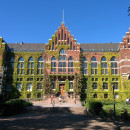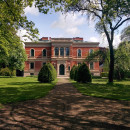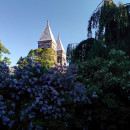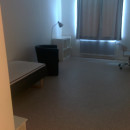Sweden: Learn a Language and See Europe! Past Review
By David L (Political Science and Government, University of Connecticut) - abroad from 01/12/2015 to 06/07/2015 with
Lund University: Lund - Direct Enrollment & Exchange
I learned about life in other countries and made friends from all over the world. I had the chance to travel across Europe and see so many things I could never have imagined. I would consider the experience completely worthwhile.
Review Photos





Personal Information
| How much international exposure did you have prior to this program? | 2 weeks - 1 month |
Review Your Program
|
* Overall educational experience
Academic rigor, intensity, resources, etc. |
Classes were hit-and-miss, but those that were good were fantastic. Overall the level of work was well-tailored to exchange students, presenting enough of a challenge that we were definitely able to learn something without demanding too much time that could be spent traveling or meeting new friends. |
|
* Host Country Program Administration
On-site administration of your program |
Administration was helpful when they could be contacted, although it was typically disorganized and operated on very limited hours, which could make it very difficult to work with at times. |
|
* Housing:
How satisfied were you with your living arrangements? |
Living arrangements were typically enjoyable, however LUAccomodations was quite picky about the cleanliness of rooms and common areas even during the middle of the semester. |
| * Food: |
Sweden's a good location for food with access to many world cuisines. Be sure to try kebab as well as local Swedish food! Lund University's official restaurants and unofficial student-run food options (operated by the "nations") are both delicious and affordable. |
|
* Social & Cultural Integration:
How integrated did you feel with the local culture? |
Unfortunately, you'll really need to make an effort to get to know Swedes and Swedish culture. Swedes can be difficult to get to know on a personal level, and Sweden has a very high level of English fluency and American cultural influence. Although you'll certainly come out of the exchange with a deeper appreciation for Swedes and Swedish culture, you'll need to put in an effort to get a really substantive appreciation for the culture. |
|
* Health Care:
How well were health issues addressed during the program? |
Although I had no experiences with health care, from my friends who have had experiences and from what I know about the safeguards in place it seemed to be a thorough system. |
| * Safety: |
Lund is an extremely safe city. Aside from rampant bicycle theft and isolated incidents of pushy bouncers and reckless drivers there's no danger in Lund. |
| If you could do it all over again would you choose the same program? |
Yes
|
Finances
|
* Money: How easily were you able to live on a student's budget?
(1 = not very easy/$200+ on food & personal expenses/week, 2.5 = $100/week, 5 = very easily/minimal cost) |
Sweden, and Lund in particular, is an expensive place (though coming from a more expensive part of the US I was somewhat more used to it). You can manage on around $150 or less a week if you learn how to budget and shop for food at the cheaper places. |
| Not including program expenses, about how much money did you spend on food and other expenses each week? | Approximately $100 a week. |
| Do you have any general money-saving tips for future study abroad participants? | Learn what things are more or less expensive in Sweden relative to the US. For example, fresh fruit (especially citrus) and American-branded products (like, say, Oreos) are more expensive in Sweden while potatoes and onions are cheaper. Another example would be alcohol - spirits are far more expensive in Lund, though beer and cider (particularly low-alcohol brands) and wine are relatively cheaper. |
Language
| * Did your program have a foreign language component? | Yes |
|
How much did the program encourage you to use the language?
0 = No encouragement, 5 = frequent encouragement to use the language |
English was the language of instruction, but most students will take at least a few weeks of Swedish at Lund. Although nearly all Swedes speak fluent English, Swedish is still very useful to be able to read street signs, navigate stores, etc. |
| How would you rate your language skills at the beginning of the program? | None |
| How would you rate your language skills at the end of the program? | Beginner |
| What was the highest level language course you had completed prior to departure? | None |
| How many hours per day did you use the language? | |
| Do you have any tips/advice on the best ways to practice the language for future study abroad participants? | Duolingo.com is a fantastic resource for language learning and it does include the Swedish language. Because so many Swedes know English, it's easy to practice your Swedish on them. |
Other Program Information
|
* Where did you live?
Select all that apply |
|
|
* Who did you live with?
Select all that apply |
|
|
* Who did you take classes with?
Select all that apply |
|
| About how many local friends did you make that you will likely keep in touch with? | 0 |
A Look Back
| * What did you like most about the program? |
|
| * What could be improved? |
|
| * What do you know now that you wish you knew before going on this program? | It's never too early in the semester to get out and start exploring, especially when it comes to seeing Sweden and the area around Lund. |
Reasons For Studying Abroad
| To help future students find programs attended by like-minded individuals, please choose the profile that most closely represents you. |
The Academic or LinguistYou went abroad with specific academic goals in mind; the program credentials and rigor of your coursework abroad were very important to you. You had a great time abroad, but never lost sight of your studies and (if applicable) were diligent with your foreign language study. Good for you! |








